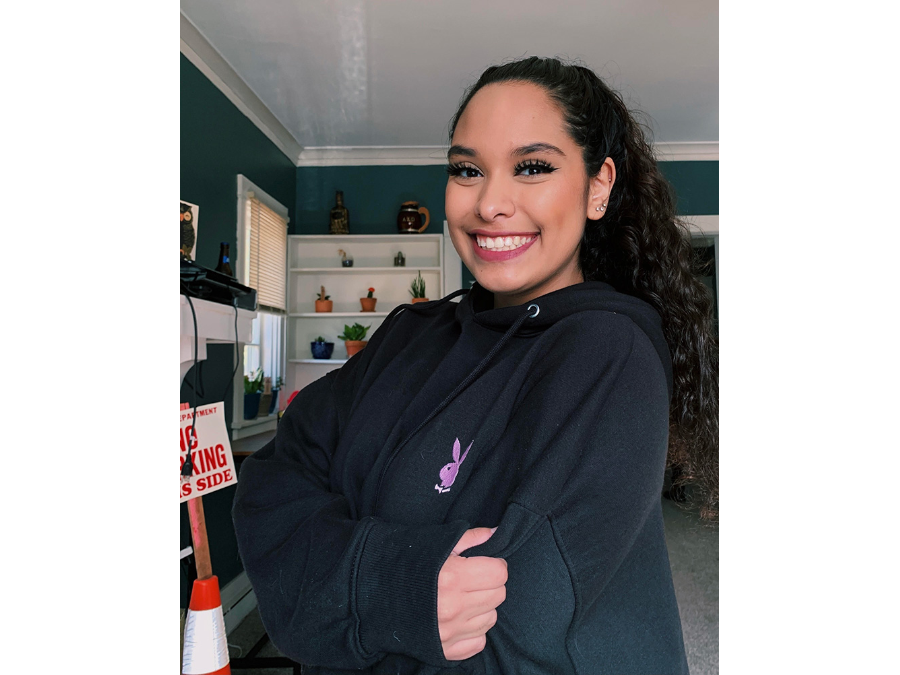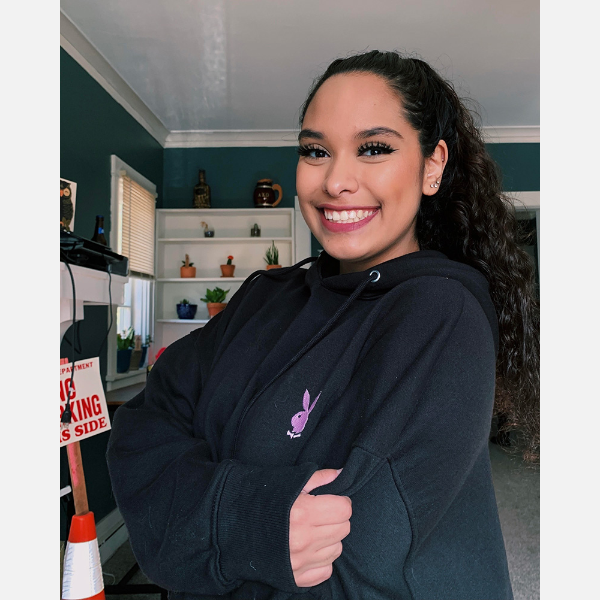Bradley senior develops program to aid in low-income secondary students
Although she grew up in the affluent Chicago neighborhood of Elmwood Park, Ill., Karen Fragoso ’21 was raised by a single mother and money was always tight for the family of five. She never saw her low-income status as an issue, however, until she came to Bradley.
“I felt very behind because I didn't get that same quality of education that higher income students did,” said Fragoso. “I didn't get any ACT prep. I didn't get any tutoring. I had to figure it out all on my own, especially being a first-generation student.”
Fragoso knew from experience education was the best way to leave the cycle of poverty. So she pushed herself to work harder and study harder. Yet she saw many like her without the same kind of motivation.
“A lot of low-income students feel like they can't do it because they don't have the resources. Or they work so often because they don't have money and don't think they'll have a chance to focus on school.
For her capstone project, the public relations major developed SpeechFluent, a program that helps Black and Latinx high school freshmen and sophomores have access to arts education by using competitive speech. In November, Fragoso told Peoria’s WMBD research has found “implementing the arts through dramatic performances causes an increase in SAT scores as well as GPA as high as 8.5% and 15%, respectively.”
SpeechFluent gives Peoria high school students the chance to take speech classes with members of Bradley’s nationally renowned speech team at Artists ReEnvisioning Tomorrow (ART, Inc.), founded by Jonathan Romain ’90 and his wife, Nikki. It was during her internship at the nonprofit that Fragoso met the couple, who readily offered their support for the project.
“Speech is something that unlocks so much in a person,” she said. “You learn whether you love talking or not. There's so many things you can go to. If you’re articulate, if you're a good writer. Doing arts also helps math and science scores. By being able to do better in science and math, students can see they have what it takes to go to college, do something in STEM or even pursue the arts.”
Last semester, Fragoso focused on research, making sure she understood the best ways to help the students by learning about their experiences and what they would need from the program. She plans to start implementing the after-school program this semester.
In the meantime, Fragoso has been busy using what she’s learned through her public relations classes, talking to local media to get the word out. ART, Inc. has helped by posting information on their social media pages.
Once the student program is up and running, she wants to turn her attention to the parents.
“A lot of parents face discrimination being low-income,” said Fragoso. “Teachers think they (parents) don't care about their students because they can't be there for them all the time. I want to ease parents from having such a weight on their shoulders and feeling like they're not providing for their student when programs like this exist.”
Ultimately, she wants to inspire people of color and other marginalized groups and connect them with an organization that can help them toward a brighter future.
“Just being able to create an easier way for them to access something that'll help them do better in school and in life, knowing that that's what's going to get them out of poverty is something important for people to know.”
— S.L. Guthrie M.A. ’20
Members of Bradley's 2017 speech team show off some warm up moves in the studio. These are the kind of techniques that will be used to help students in Fragoso's project. Photo by Duane Zehr.



